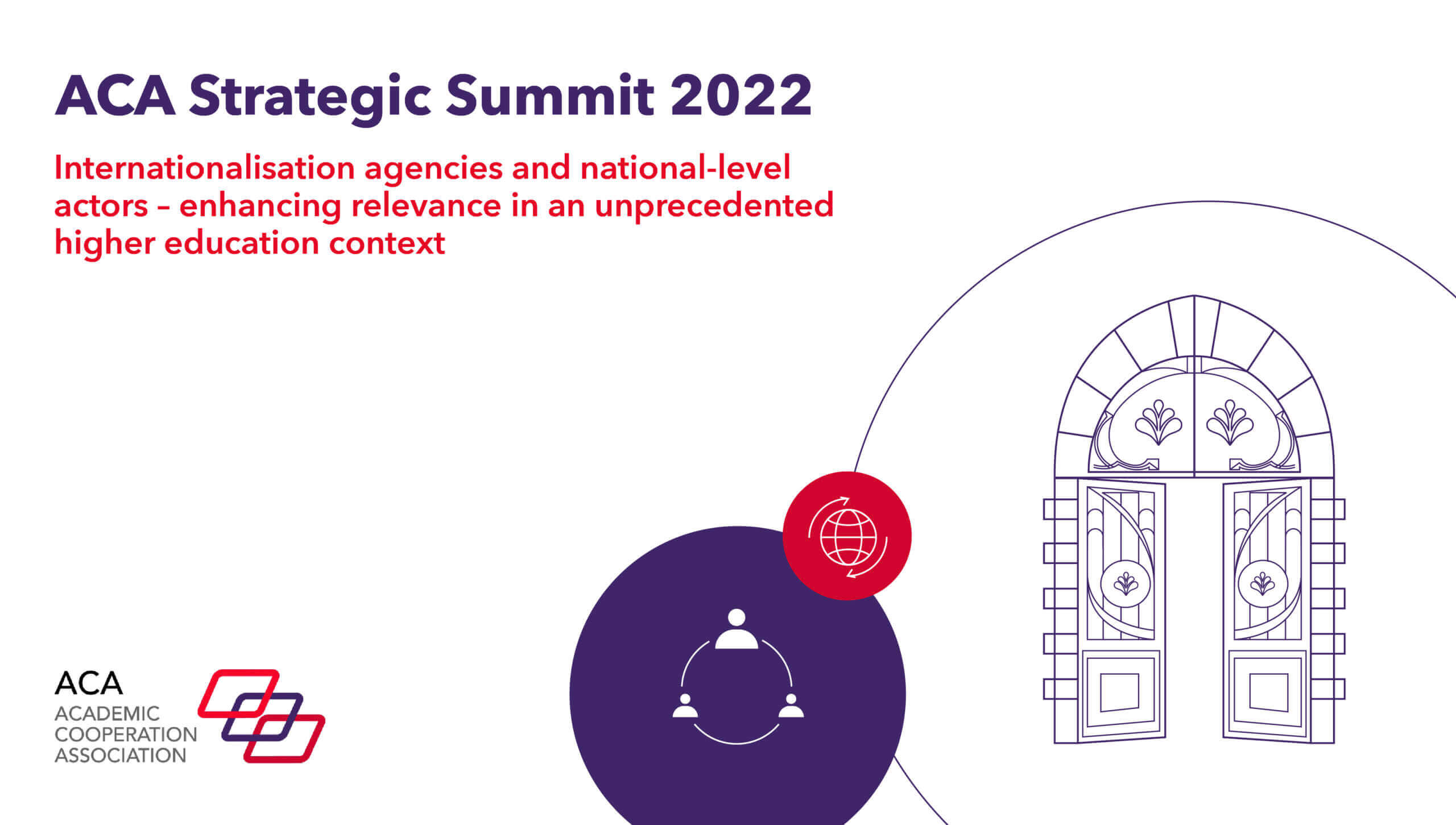The top leadership of ACA member organisations and a few high-level invited guests gathered in Brussels on 5 October for a full day of in-depth discussions, reflections, peer learning and joint forward planning in the framework of ACA’s 2nd Strategic Summit. In total, 40 top representatives from 22 countries exchanged on the broader topic of Internationalisation agencies and national-level actors – enhancing relevance in an unprecedented higher education context. The event aimed at looking both at the changes in the global political environment, in which the agencies are operating and which they strive to influence, as well as their ramifications at national-levels, taking stock of the current transformations they are experiencing, in response to new challenges.
Starting with a conversation with Sophia Eriksson Waterschoot, Director for Youth, Education and Erasmus+, European Commission, on the need to constantly adapt existing policies and strategies at European and national level (with some featured examples) to the new realities, while fully strengthening the role of education and knowledge diplomacy in building new bridges, rather than in reinforcing existing political divides, a number of key messages emerged throughout the day:
- In advocating for international cooperation, we need increasing evidence of the unquestionable benefits that international education delivers, at multiple levels. Consequently, impact monitoring and strengthened advocacy become a growing priority for national level agencies, and should be further reinforced, through joint actions, as well as through support at European and institutional level, coupled with new ways of engaging with governments and the civil society, learning also from the inspiring experience of our non-European partners (e.g the United States).
- The Team Europe approach, already lived by ACA member organisations through their layered collaboration in the association’s framework, should be further leveraged externally, to enhance cooperation for mutual gains, in which shared values provide direction and broader awareness of both the benefits, as well as the potential risks, without becoming a straitjacket. On par cooperation, for mutual benefit (like in the Bologna Process, that inspired many transformations in other parts of the world), should be continued, as a more suitable positioning for Europe than approaching partnerships from a global leadership position.
- National agencies, similar to higher education institutions, currently experience many internal transformations, and are equally challenged due to growing uncertainty, in their strategic planning as well as in implementation. Leadership plays a key role in providing visionary guidance during such challenging stages of organisational evolution and prepares the organisations for different possible future scenarios. To be successful, they also need support from governments to deliver on their mission, while relying on full collaboration with their higher education system and international partners
Overall, flexibility and resilience remain key skills to employ, while working on impact and outreach.

